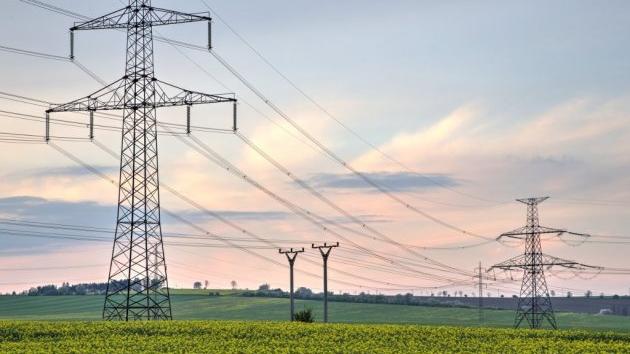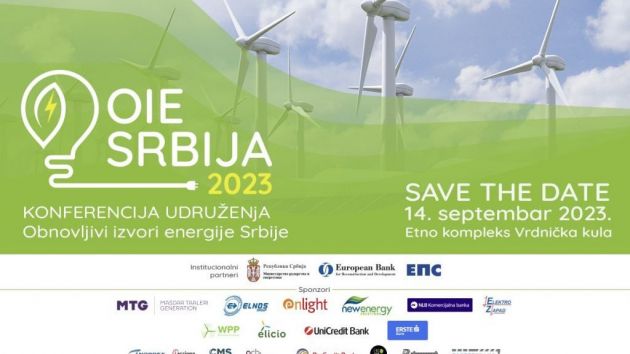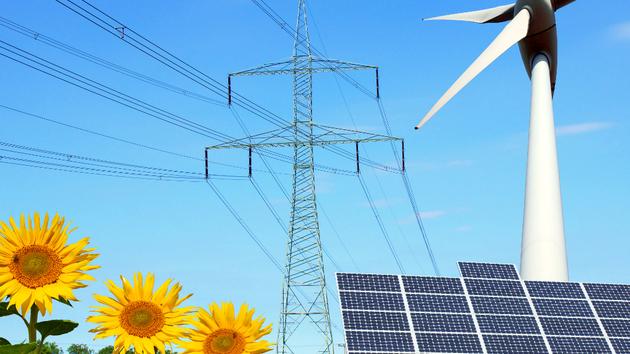Walburga Hemetsberger, SolarPower Europe – Serbia Has a Place in Europe’s Solar Regime
Source: eKapija
 Wednesday, 20.09.2023.
Wednesday, 20.09.2023.
 12:15
12:15
 Wednesday, 20.09.2023.
Wednesday, 20.09.2023.
 12:15
12:15
(Photo: OIE Srbija/Goran Zlatković)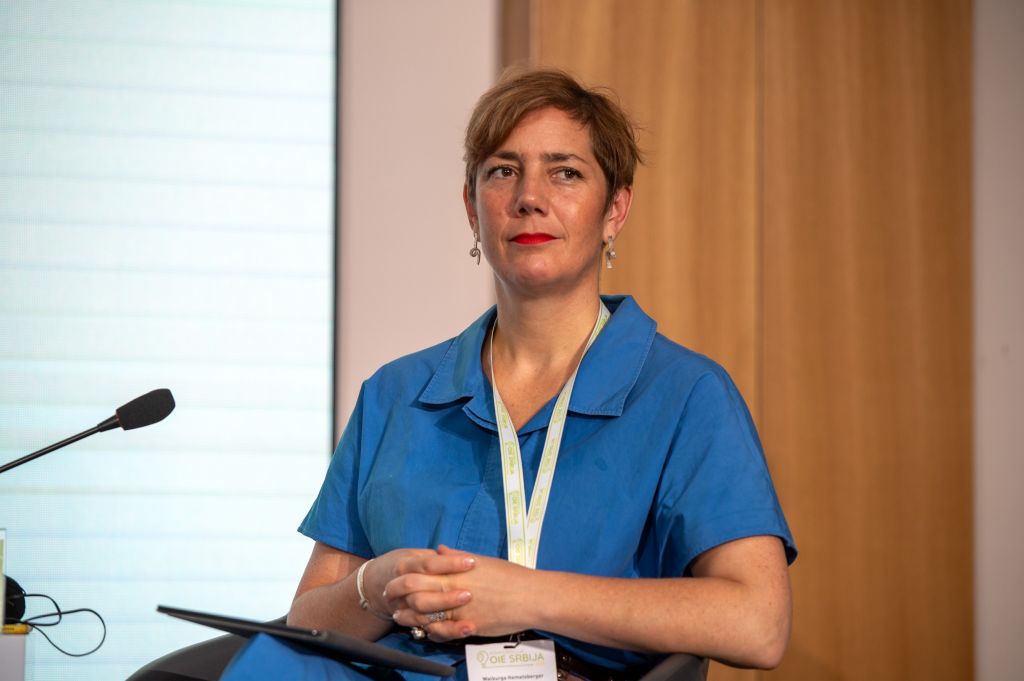

eKapija: How far do You believe we are from the solar power targets for 2030? Could the goal to have solar power as the primary source of energy by 2030 in Europe be achieved?
– History has shown that we are always doing much better than the forecast. If you look at our own forecasts in the past years, they have always been outperformed, and we have always had very optimistic forecasts. Also, other institutions, like the International Energy Agency (IEA), have had to revise their solar targets and forecasts constantly, in order to bring them in line with reality.
We are growing considerably, last year we had some 40 GW installed, and that was twice as much as we installed some three years back, and this year we are set to up to 60 GW. So, we are growing very, very fast, but it is true that last year we had been at some 200 GW of cumulative installed capacity, and the European Commission wants us to be at 750 GW by 2030. We do think that we can go even higher, so we are aiming at 1 terawatt (TW) of solar capacity by then.
There are some challenges on the way, but we see that we are moving very, very quickly.
Solar power is a very versatile technology, and this is helping. It is also decentralized, with people putting all kinds of structures on the roofs, which is helpful. So, there are so many different opportunities. You can integrate it with building materials, so that you don’t even see it. It is actually democratizing the energy sector. We`ve seen that especially in the crisis – there was a huge increase of the rooftop segment, because people wanted to produce their own electricity and do it fast.
eKapija: Do You see any possible obstacles to achieving the targets?
– Yes. There are still some challenges on the way: the more we grow, the more we see problems when it comes to grids. There are countries that have been frontrunners in building solar, and are facing some bottlenecks, like the Netherlands, for example. The other thing is the regulatory stability. We’ve seen some market interventions during the crisis that didn’t help. The third thing is workers. We need to have much more of them. At the moment, there’s some 500,000 of them in Europe, and with the ambitions we have, we are looking at 1 million at least, if not 1.5 million.
eKapija: That encompasses the whole of the industry, including the production of the solar power equipment?
– Yes, altogether.
eKapija: There’s an issue with China at the moment, which is alleged to be dumping the prices of the equipment and overflowing Europe with it. Could that jeopardize the European efforts?
– One thing that everyone agrees is that we cannot jeopardize our energy transition. At the moment, we are heavily dependent on China: more than 80% of what we are using as products is coming from China. At the same time, we need to make sure that the European manufacturing is also scaling-up. We need to have some resilience, some strategic autonomy; so, it is a balancing act – we need to make sure that we are going fast at deploying solar, and on the other hand, we need to have a really smart and forceful European industrial strategy in order to make sure that we are resilient and that we do have supply chains here in Europe again. There are a couple of very interesting projects, companies that want to scale up, but they need support, and we need to make sure that those companies can scale up.
eKapija: Is there any room there for countries like Serbia, which is going through re-industrialization, and given that the labor costs are not that high?
– Definitely, yes. As long as countries are providing right framework conditions, and that means, for example, a fast issuing of permits, or competitive energy prices – and that is where we lose the most, in comparison to US and China, as energy in Europe is much more expensive, and we are talking about energy-intensive production. So, we need to make sure that we bring down energy costs. In Germany, they are at the moment discussing support for industrial electricity prices. If that requirement is met, we could be competitive and save the industry in Europe, providing that we also scale up, because in China the manufacturers are really huge, and having such huge capacities is what is in effect bringing down the costs. The demand in China is also huge; this year, they will be adding 200 GW, and this is what we have installed in Europe in total.
More and more studies show that the future of industry is heavily dependent on whether your energy system is based on renewables or not. Among other things, renewables give the cheapest energy.
Solar panels decentralize and democratize energy (Photo: Pixabay.com/photomix-company)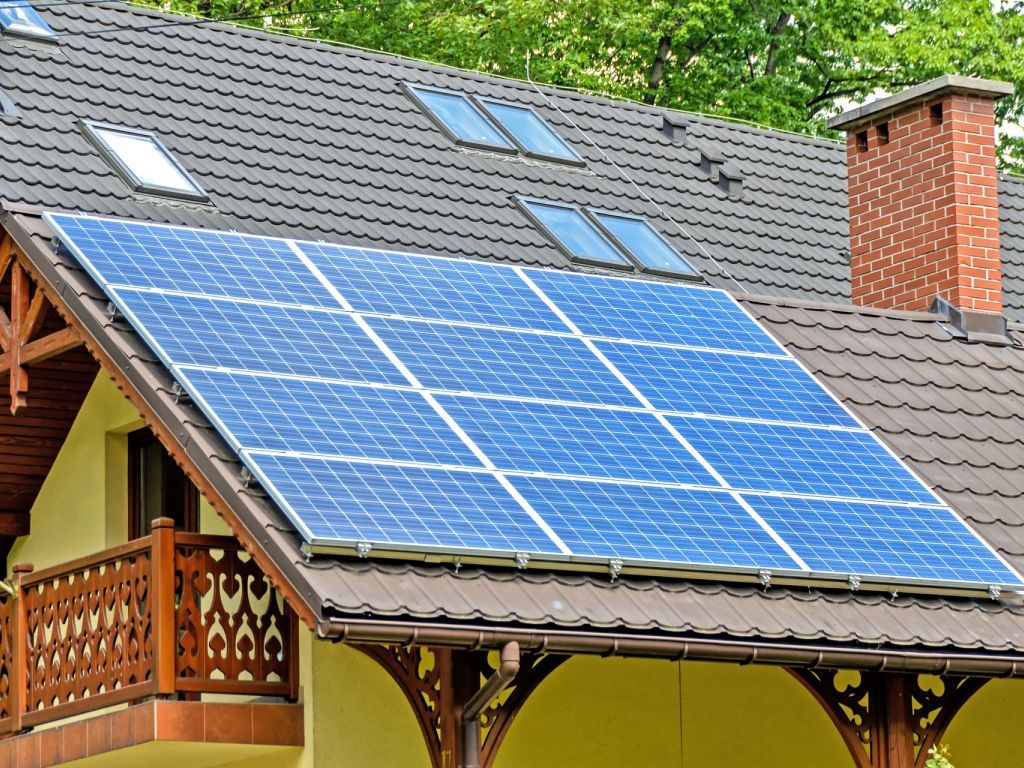

eKapija: How can a country like Serbia, which is at the beginning of the solar power development, obtain much more MW from the sun?
– I think Serbia is really on a good way. Listening to your minister today at the RES Serbia 2023 conference, my impression is that there is political will and the ambition do develop RES, as well as to create the right framework, with the auctions and the regular auction schedule. And then you need to work on other challenges, like grids.
eKapija: You are emphasizing the importance of political will, but we know from our experience in Serbia that, with time, it can go into decline.
– That is why it is of the greatest importance to have goals that are preset, because political landscape can change, but with the international partners, with the EBRD supporting and pushing through it, we are putting pressure on countries as well.
eKapija: Are we at the moment witnessing any important breakthroughs in technology that would facilitate achieving the optimistic scenario?
– I think it needs a breakthrough in how we see an energy system. There are, of course, the innovations that we cannot think of, but generally speaking, the technologies are there, and it’s really about getting them into the system. It requires a mindset shift of infrastructure providers, of grid operators, of regulators, because the energy system is not the centralized energy system that we used to know, and it requires a paradigm shift, in the way we are planning it, in the way we are running the system.
eKapija: How important is it for Serbia to have a SolarPower Europe member?
– It’s critically important, because we can all learn from each other. Already, the Association here in Serbia is bringing together the whole ecosystem, bringing the private sector together with the political side, with the public sector, making everyone looking for the best way to achieve their ambitions that have been set. Then, there’s us, and we are bringing the national associations together, not just providing the best possible framework at the European level or pushing for the best possible framework at the European level, but also bringing all the local experts together, so that everyone can learn from each other. For example, it was great having the Croatian association here. Everyone can share learning and everyone can share the best practices, and this is how can evolve much faster together.
eKapija: When a skeptic speaks of solar power, he says that the solar panels cannot be recycled.
– There is a whole industry currently building up, recycling solar panels. There are still a couple of challenges to be overcome, I do think that we still have to work on the best possible way to recycle, but the thing is no huge quantities of solar panels are coming back yet, allowing the industry to scale up, but we do think that by the end of this decade, given the lifetime of solar panels, the first substantial amount of solar panels would be coming back to recycle, and for that we need to have the right framework in place, so that those solar panels are either recycled or reused, and that we really make sure that there is a circular economy, because we all want to profit from it and keep the material and not just throw it away. So, I do think that it`s vital to build that industry and have the right framework in place, so that, as soon as these quantities are coming back, we can deal with those. There are companies that are at this moment scaling up in order to be ready when the big quantities come back.
M. Radonjić
Tags:
SolarPower Europe
Walburga Hemetsberger
RES Serbia
EBRD
International Energy Agency
IEA
RES Serbia 2023 conference
solar energy
green energy
solar panels
recycling solar panels
Comments
Your comment
Most Important News
Full information is available only to commercial users-subscribers and it is necessary to log in.
Follow the news, tenders, grants, legal regulations and reports on our portal.
Registracija na eKapiji vam omogućava pristup potpunim informacijama i dnevnom biltenu
Naš dnevni ekonomski bilten će stizati na vašu mejl adresu krajem svakog radnog dana. Bilteni su personalizovani prema interesovanjima svakog korisnika zasebno,
uz konsultacije sa našim ekspertima.


 Izdanje Srbija
Izdanje Srbija Serbische Ausgabe
Serbische Ausgabe Izdanje BiH
Izdanje BiH Izdanje Crna Gora
Izdanje Crna Gora


 News
News









